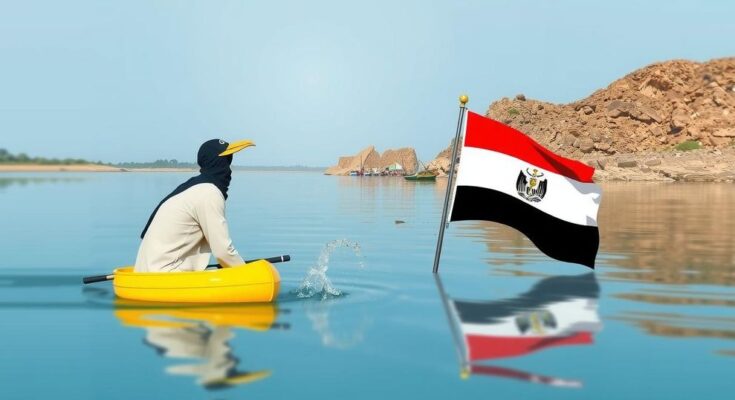On December 4, 2024, Egypt and Uganda signed a joint declaration focusing on regular consultations regarding Nile River waters and enhancing bilateral cooperation in various sectors. The agreement emerged during political talks in Cairo, highlighting Egypt’s commitment to support Uganda’s development projects and Uganda’s stance on maintaining water supply stability for downstream nations. The subsequent consultations are scheduled for early 2025 in Kampala.
On December 4, 2024, the Ministers of Foreign Affairs from Egypt and Uganda, Badr Abdelatty and Henry Okello respectively, signed a joint declaration aimed at enhancing bilateral cooperation and ensuring regular consultations regarding the management of the Nile River waters. This agreement emerged from political talks in Cairo, attended by a high-level Ugandan delegation, which included the Minister of Water and Environment, Sam Cheptoris. The declaration seeks to promote mutual benefits and align with international laws concerning the usage of Nile Basin resources.
As outlined in the declaration, Egypt is committed to supporting developmental initiatives in Uganda that adhere to national priorities, drawing from successful projects like the Owen Falls Dam. Minister Okello emphasized Uganda’s steadfast position against any disruptions to the Nile water supply for downstream nations. He reaffirmed Uganda’s commitment to avoid actions that would obstruct water flow, thereby fostering a sense of security among neighboring countries.
The Nile water management context is complex; Uganda is among the signatories of the Entebbe Agreement of 2010, which has been contentious, purportedly threatening the historical water rights of Egypt and Sudan. The agreement allows upstream countries to undertake water projects without seeking approval from downstream nations. Egypt and Sudan have consistently opposed this framework, urging renewals of discussions to stabilize benefits for all Nile Basin countries.
In addition to water resource management, the joint declaration signifies expanding cooperation into various sectors, including defense, security, infrastructure development, and agriculture. Both nations plan to foster private sector engagement to bolster trade and investment, while ensuring participation in key regional organizations such as COMESA and the African Union. The next round of consultations is scheduled to take place in Kampala in early 2025, signaling ongoing diplomatic commitment between the two countries.
The Nile River is a vital water source for several countries in East Africa, including Egypt, Sudan, and Uganda. The management of its waters is a significant geopolitical issue, often leading to tensions among nations due to competing water needs. In recent times, agreements such as the Entebbe Agreement have been contentious as they challenge historical water rights asserted by Egypt and Sudan. The latest discussions between Egypt and Uganda mark an effort to stabilize relationships and enhance mutual cooperation, particularly concerning the sustainable management of shared water resources.
In conclusion, the joint declaration signed by Egypt and Uganda highlights a critical step toward collaboration on Nile River water management and broader bilateral relations. These efforts reflect a commitment to mutual benefit, particularly in the face of regional challenges concerning water rights and resource management. By fostering cooperation in various sectors, both countries aim to pave the way for sustainable development while reinforcing their diplomatic ties.
Original Source: www.egypttoday.com




